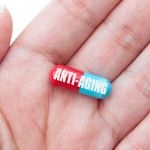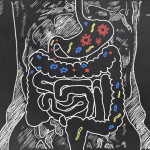David Blyweiss, Advanced Natural Wellness
Keeping a lid on your blood sugar levels may do more than just prevent diabetes. According to a recent study that landed on my desk, it may also help prevent age-related memory loss.
Using high-resolution brain imaging, researchers at Columbia University Medical Center showed that rising blood sugar levels can target a key area of the brain linked to memory. This finding just backs up what I’ve long suspected—that controlling your blood sugar levels with a healthy diet, exercise and specific supplements can help both the body and the brain as you age.
In the study, the researchers used an MRI to record the functioning of the hippocampus—the specific part of the brain that helps regulate emotion and memory—in 240 healthy seniors. Sixty of them had diabetes while 74 had some damage to brain tissue, a condition known as brain “infarcts.” The MRI’s showed that different parts of the hippocampus are affected by rising cholesterol levels, body weight and yes, blood sugar, all of which tend to occur as we get older.
Even moderate elevations in blood sugar led to decreases in blood flow in the part of the hippocampus which is involved in memory formation. Because decreased blood flow is potentially fatal to neurons, the researchers speculate that “normal” declines in memory function may come from uncontrolled fluctuations in blood sugar.
But here’s the upside—taking steps to lower your blood sugar now can help prevent age-related cognitive decline, even if you don’t suffer from diabetes.
Exercise Lowers Blood Sugar
Exercise is the perfect prescription for regulating blood sugar levels. Recent evidence shows that, during exercise, the body transfers sugar from the blood into the muscle cells, where it is used as fuel. This process reduces the amount of glucose in the bloodstream. Additionally, regular exercise can improve the body’s response to insulin. Increased sensitivity helps insulin perform its work more efficiently. If that weren’t enough, exercise—especially aerobic exercise—boosts blood flow to the brain. This helps keep neurons firing properly.
The ongoing Memory in Diabetes (MIND) study, a sub-study of the Action to Control Cardiovascular Risk in Diabetes Trial, found that even a small bump in A1C levels (average blood glucose levels over a period of two to three months) resulted in lower scores in a variety of tests measuring cognitive function. To keep your blood sugar levels low and your cognitive function high, I recommend getting 30 to 60 minutes of aerobic exercise at least five days a week.
Smart Supplements
The World's Quickest Solution for Ending Prostate and Urinary Misery
This has recently been revealed to be one of the only real breakthroughs in prostate health.
The seeds of a strange fruit (sometimes called "Chinese Apples") hold powerful phytonutrients that are a revolution in prostate health.
In fact, UCLA and Veterans Administration research have now proved this to be true.
Not only that, but it may be the worlds quickest solution for ending prostate misery.
Simply stated, these phytonutrients represent a huge step beyond beta sitosterol, saw palmetto, and other phytosterols alone.
Simply click HERE if you want to have fast prostate relief...restful, uninterrupted sleep...no more constant "urges to go"...enhanced virility...and optimal prostate support for life.
Lowering your blood sugar levels with the help of supplements can enhance your memory even more. Topping my list is cinnamon. Recent studies have shown that a daily dose of cinnamon can help to reduce blood sugar natually. The polyphenol content in cinnamon actually mimics insulin and activates blood sugar regulator receptors. In one study, type-2 diabetics who took cinnamon powder capsules daily had 20 percent lower blood sugar than a control group. Even non-diabetics can benefit, as stable insulin levels will give you increased and longer lasting energy. All it takes is one-half teaspoon of cinnamon each day. If you aren’t a fan of this sweet spice, try taking cinnamon capsules.
Resveratrol is another of my favorites. Resveratrol, which comes from red wine and grapes, seems to protect tissues—including brain tissues—from damage when they are exposed to high blood sugar levels. Because of the protection it offers against diabetics’ dysfunctional metabolism, the substance may help prevent every major diabetic complication. In fact, it offers even more bang for your nutritional buck because it also mimics insulin in the body, which means it helps lower blood sugar all by itself. For the most impact, take 500-1500 mg. of resveratrol daily.
Managing your blood sugar levels before they spiral out of control goes far beyond reducing your risk of diabetes. Combining a whole foods diet with the strategies I’ve outlined can help to keep you sharp as a tack well into your 80s and beyond!
References:
Cukierman-Yaffe T. Relationship between baseline glycemic control and cognitive function in individuals with type 2 diabetes and other cardiovascular risk factors: the action to control cardiovascular risk in diabetes-memory in diabetes (ACCORD-MIND) trial. Diabetes Care. 2009;32:221-226.
Kirkham S. The potential of cinnamon to reduce blood glucose levels in patients with type 2 diabetes and insulin resistance. Diabetes, Obesity & Metabolism. 2009;11:1100-1113.
Masley S. Aerobic exercise enhances cognitive flexibility. Journal of Clinical Psychology in Medical Settings. 2009;16:186-193.
Zunino S. Type 2 diabetes and glycemic response to grapes or grape products. Journal of Nutrition. 2009;139:1794S-800S






